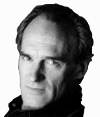…or maybe a human’s progress. As of today, I’ve been with Newfangled for six years. The passage of time creates all kinds of illusions; sometimes it seems as if I’ve been here much longer, other times as if I just began.
Browsing through the archive of newsletter articles and blog posts on our site, I can review the things I’ve written over the years and get an overview of how particular themes have been consistently woven into that content. Though my first day was on September 1st, 2005, I marked my 5th anniversary with a review with Mark on July 1st, ending my first year as Vice President of Newfangled. Around that time, I was thinking about the future of the web. A year before that, I was thinking in terms futurey still and still.

This year is the same. If I had to put it in the simplest terms, I’m interested in where we are in the big story of human progress. I don’t mean progress in the way that I think we often think of it: the ongoing improvement in the conditions of life, whether in terms of social or technological progress, as in, “Ending our addiction to fossil fuels is the next necessary step in technological progress.” I mean progress in the much more simple, general sense of moving forward, as in, “humanity progresses.” Because I don’t know for certain how our story will end – whether we’re inexorably heading on a path of self-destruction, one toward utopia, or perhaps simply within an ongoing cycle – I also don’t know where we are in the “timeline” of our story. Those who know me well understand that I tend toward an entropic interpretation of our story, so I’m able to find the hints of decline in most technological shifts, trends, or achievements. I don’t necessarily want to be a glass-half-empty person, but that seems to be how I’m wired. In any case, if our future is left entirely up to ourselves, I find that assessment to be pretty reasonable. If not…well, that’s another article…
Ronald Wright, author of A Short History of Progress (which, incidentally, appears to have the same goal I’m describing), seems to lean more to the left-entirely-up-to-ourselves side of expectation. I’ve bolded the portion of this selection, though, that I find most helpful. He writes:

“If we see clearly what we are and what we have done, we can recognize human behaviour that persists through many times and cultures. Knowing this can tell us what we are likely to do, where we are likely to go from here. Our civilization, which subsumes most of its predecessors, is a great ship steaming at speed into the future. It travels faster, further, and more laden than any before. We may not be able to forsee every reef and hazard, but by reading her compass bearing and headway, by understanding her design, her safety record, and the abilities of her crew, we can, I think, plot a wise course between the narrows and bergs looming ahead. And I believe we must do this without delay, because there are too many shipwrecks behind us. The vessel we are now aboard is not merely the biggest of all time; it is also the only one left. The future of everything we have accomplished since our intelligence evolved will depend on the wisdom of our actions over the next few years. Like all creatures, humans have made their way in the world so far by trial and error; unlike other creatures, we have a presence so colossal that error is a luxury we can no longer afford. The world has grown too small to forgive us any big mistakes.”
Not exactly uplifting. But somehow I’m able to hold both the pessimism and optimism simultaneously. I agree with Wright’s assessment that things are bad, but I also believe that we are capable of making them better, should we choose to do so. The question is whether we will choose to, and whether we can sustain that choice. We’ll see.
So why bother asking these questions with blog posts on the website for a web development company? Good question. Why not? I don’t suppose being a doctor, a lawyer, a philosopher, or a nation’s president would qualify me any more to wonder as to our place in progress as does my being who I am. It seems that the question is legitimately asked by anyone, provided they are human. Maybe this is too high-minded, but I wonder if society wouldn’t be better off with everyone asking this question every now and again. In the meantime, I like the idea that I’m simply one of billions of humans – a tiny voice overwhelmed by the other voices simultaneously speaking right this moment in the world, not to mention utterly obliterated by the vast sea of persons who have already come and gone from our planet.
For me, here’s to the hope of another year! Where do you think we are in the story of human progress?


